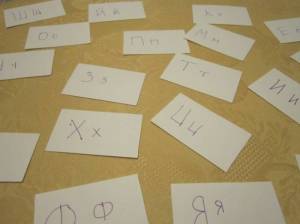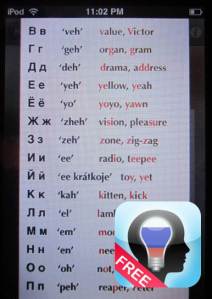Inga's Lingua BLOG – all about Language & Culture
Sign Up to have a Spanish Program Custom Designed for you at www.ingaslingua.com
40 Days to Fluency Challenge (Russian)
I started a 40-day challenge to learn Russian after being invited to Russia for a dear friend’s wedding. My goal was to become conversationally fluent in Russian before getting there. Learning to Speak in Russian is one of my many language goals so this trip was a good excuse to get started, but I also had an additional motivation.
While studying for my master’s degree in London I learned about many negative perceptions of Americans being monolinguals, and culturally deprived. I wanted to be sure that I was not perceived as that type of American in Russia. My goal was to be able to speak to everyone at my table and anyone I encountered at the wedding in Russian.
I realized that this would be a difficult challenge because, unlike when I was in Mexico, language learning was just one part of all the things my busy day would consist of. I was working 9-5 Monday through Friday and my time was limited. So, I needed to strategize. I created a schedule with my strengths in mind. Knowing that I learn better and am more attentive in the morning I planned on doing the bulk of my studying then, during my 45-minute commute and on weekends.
In addition, since there are so many free resources available to learn a language I decided I would use them and track my results along the way. I documented my 40-day challenge on my twitter page @ingaslingua (or https://twitter.com/ingaslingua)
The resources that I used were as follows:
– Index Cards
– iTouch
– YouTube
– Meetup Groups
There were positive and negative results to using each for me.
Index Cards
The benefits:
– Great for use on the go (during my commute)
– Forced learning during creation
– Being able to use a tally system to efficiently determine when vocabulary has been learned
 While it may seem that many apps could replace the need to use index cards, they are great to have on the go in case your device dies. In addition, making the cards can provide an introduction to the vocabulary which forces you to note exactly how it is spelled. In Mexico, I used a tally system while studying with index cards where I would mark the number of times I could correctly identify the word in Spanish. Once I did I right 5 times, I flipped the card in the deck and tried to correctly identify it from English. Once that was done, I would remove the card from the deck.
While it may seem that many apps could replace the need to use index cards, they are great to have on the go in case your device dies. In addition, making the cards can provide an introduction to the vocabulary which forces you to note exactly how it is spelled. In Mexico, I used a tally system while studying with index cards where I would mark the number of times I could correctly identify the word in Spanish. Once I did I right 5 times, I flipped the card in the deck and tried to correctly identify it from English. Once that was done, I would remove the card from the deck.
My difficulty:
The index cards I created for this challenge were solely based on the alphabet. I intended on going further with my use of the index cards with vocabulary building but I found other resources to be much easier given my schedule.
iTouch (or other android device)
The benefits:
– Free lessons available on the go
– Convenient way to hear native pronunciations of vocabulary
– Sharpen my ability to identify words in Russian Characters (Cyrillic script)
 With my iTouch I was able to download both free language learning apps and podcasts in Russian. These are great because if you have a busy life the lesson plan has already been done and you can simply follow along. My favorite free app was Memorize Words for Russian
With my iTouch I was able to download both free language learning apps and podcasts in Russian. These are great because if you have a busy life the lesson plan has already been done and you can simply follow along. My favorite free app was Memorize Words for Russian
The app had four games that could be played based on the number of words learned. The words in this app became “sight-words” for me. I could see them and quickly know what they were without really needing to read them. One of the games was a matching game where you matched the English words to the matching Russian word in the Cyrillic script. I was able to get through 8 words in 15 seconds without making mistakes. All together the free app had 244 vocabulary words.
My difficulty:
While this method proved to be one of the easiest I didn’t always feel like my efforts translated into language abilities. After learning all the words in my free app and being able to swiftly complete the games correctly I couldn’t carryout small conversations.
YouTube
The benefits:
– Tons of unique free language classes
– Lessons available at your convenience
– Ability to pause, stop, rewind lessons at your own pace
 The videos are tailored to different types of learners. Some people just want fast vocabulary while others want an in-depth understanding of the nuances of the language. Ultimately, I found that I really liked the videos which provided a classroom-like teaching style. My favorite YouTube videos were the Russian World series produced by Dallas ISD. These classes also heavily practiced writing in Russian Cyrillic, which really increased my ability to read Russian words.
The videos are tailored to different types of learners. Some people just want fast vocabulary while others want an in-depth understanding of the nuances of the language. Ultimately, I found that I really liked the videos which provided a classroom-like teaching style. My favorite YouTube videos were the Russian World series produced by Dallas ISD. These classes also heavily practiced writing in Russian Cyrillic, which really increased my ability to read Russian words.
My difficulty:
The best thing about YouTube is equally the worst thing about YouTube – there are so many options for learning with different services that it’s hard to navigate which is best. After navigating the sea of information on YouTube and settling on Russian world, I had a new problem. The lessons had a lot of review, which is undeniably necessary when learning a language, you need to practice and have repetition, but I had a short time frame to do my leaning in so I didn’t progress as much as I would have liked to. None the less, I stuck with her classes, because I thought it was better to learn a little bit of information well, than to learn a lot of information poorly.
Meetups
The benefits:
– Opportunity to practice what you’ve learned
– Correction from native speakers
– Learn untaught uses of the language
Meetups are a great because they provide an opportunity to test what you’ve learned. At my first Meetup I learned that the word I was memorizing to say “excuse me” was not used colloquially. I also noticed that I was super intimidated to use my language, but each time I went to a Meetup I was more inspired to go home and study so that I would be able to say more at the following session.
My difficulty:
I learned that it can sometimes be tricky to navigate Meetups. I once attended a Meetup group for Russian speakers thinking it would be a great opportunity to practice but it wasn’t a study group. All the people in attendance were really fluent in Russian and were having seemly in-depth Russian conversations when I joined them. In another instance, I attended an international language study but there was only one Russian speaker present and she was not from Russia.
The Results
The app I downloaded helped build my confidence in word recognition. While walking through Russia I could comfortably and confidently recognize what was written on the stores and street signs. Ultimately, I did not reach my fluency goal, here’s some of the reasons I think it didn’t happen.
